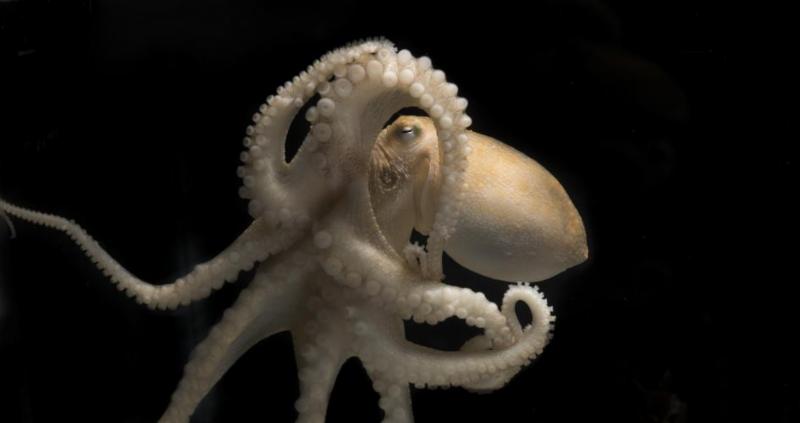 This is my blog so I’ll write about what I want to write about
This is my blog so I’ll write about what I want to write about
Octopuses don’t have it great in popular culture. Fried calamari is the sexiest appetizer on the menu at TGI Friday’s. Great Squid are like the Nicolas Cages of the ocean; while fascinating to watch from afar, it’s widely acknowledged that they are both unstable, unpredictable creatures that could easily be driven to murder you in a savage way. Then of course, there is Octomom, who successfully gave birth to 8 children then went on to have a whole host of federal charges brought up against her in addition to adult and low budget horror film careers…both short lived.
a
Recently I got an email from UChicago regarding breaking news in Octopus research…because they know exactly how to get me to donate by giving me appropriate conversation starters for first dates. In short, octopuses (and other behaviorally sophisticated cephalopods) have forfeited the ability to evolve in exchange for a high rate of editing in the coding of their RNA regions (proteins are built from RNA which is built from DNA), particularly in the nervous system. To quickly put this in perspective, more than 60 percent of RNA transcripts in the squid brain are recoded by editing, while in humans or fruit flies, only a fraction of 1 percent of their RNA have a recording event. In mammals, very few RNA editing sites are conserved, as they are not thought to be under natural selection, so mammals have less control of the genes expression, any advantageous genes will prompt the species to evolve in that direction. Conserving editing events greatly reduces the number of mutations and allows for diversifying proteins but markedly slows down genome evolution.
a
To bring things to a more Magic School Bus enjoyment, here are a few more Octopus factoids to better help you understand the magic encased in those batter encased calamari of wonder next time they grace your plate:
a
1. Octopuses have three hearts.
Two of their hearts work exclusively to move blood beyond the animal’s gills, while the third keeps circulation flowing for the organs. The organ heart actually stops beating when the octopus swims, explaining why you frequently see octopuses crawling rather than swimming, an activity that exhausts them.
a
2. After mating, it’s game over for octopuses.
Mating and parenthood are brief affairs for octopuses, who die shortly after. The species practices external fertilization. Multiple males either insert their spermatophores directly into a tubular funnel that the female uses to breathe, or else literally hand her the sperm, which she always accepts with one of her right arms (researchers do not know why). Afterwards, males wander off to die. As for the females, they can lay up to 400,000 eggs, which they obsessively guard and tend to. Prioritizing their motherly duties, females stop eating. But she doesn’t starve to death – rather, when the eggs hatch, the female’s body turns on her. Her body undertakes a cascade of cellular suicide, starting from the optic glands and rippling outward until she dies.
a
3. Octopus arms have a mind of their own.
Two-thirds of an octopus’ neurons reside in its arms, not its head. As a result, the arms can problem solve how to open a shellfish while their owners are busy doing something else, like checking out a cave for more edibles. The arms can even react after they’ve been completely severed. In one experiment, severed arms jerked away in pain when researchers pinched them.
a
Since Cuttlefish belong to the Cephalopoda Class as well, please enjoy nature reaffirming the astute animal behavior observation Chris Brown (ft. Profs. Lil Wayne and Tyga) made in his song “Loyal” when he discerned, “These hoes ain’t loyal.”
